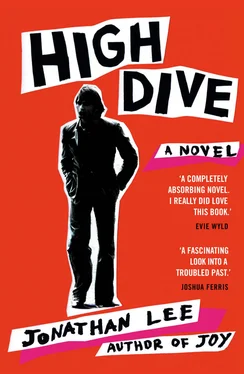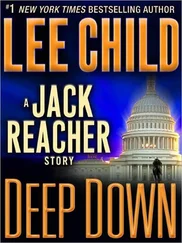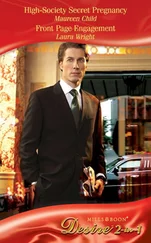There were only a dozen or so guests at the hotel who had no links to the Conservative Party. They’d made early bookings that needed to be honoured. Marina spoke to them all. Would it inconvenience them terribly if the bar was closed on Thursday night for a private event? Was there anything she could do to assure them that the increased security presence was no cause for concern? A whole room on the first floor was given over to specially ordered fax machines, two word processors, and something called a Laser Printer. Most of the male staff had visited the printer. They came back with tall tales about its innermost functions. A man who’d just moved into one of the new housing developments in Hove, where 200-year-old oaks had recently been cleared to make space for smooth driveways and neat unvarying gardens, came and gave the summer staff an ‘interactive workshop’ on Improving Posture and Dressing to Impress. He was Austrian and his whole strategy seemed to be based around the idea that if you dragged people’s insecurities into the headmaster’s office and exposed them to ridicule, the insecurities would go away.
‘So you think these tights are flattering for you, yes?’
‘Um,’ said Sally Woo.
Freya’s father was desperately worried about all the CCTV they were installing. He said he hadn’t expected so much noise. Men in overalls drilled holes. There were cameras on each of the landings, cameras at the ends of the corridors, cameras directed at the stairs, cameras high on the walls of the restaurant. She stood with him as he watched a new camera bracket being affixed. The installation was slow and methodical. Moose said his big regret was requesting that they avoid putting power cables along the skirting boards. They’d gone up into the ceilings instead. He was worried they were weakening the overall structure. ‘If lightning strikes, this place’ll go to ground.’ There was high colour in his neck as he fretted and questioned them. She had a sense that if she left him alone he might fall over again and this time he might not get up.
‘Is this really necessary?’ he said. ‘All this surveillance?’
His words made the men in overalls yawn. They continued their work in silence, smiling at each other whenever a female guest walked by, or a hip-swaying member of staff like Sasha. Her father popped another of his pills.
Climbing the stairs. Moving past scraps of paper. Reminders of her progress were taped to the walls: ‘you’ve just Reached step 15 of 45!’; ‘you’ve just Reached step 27!’; ‘step 33! The museum of lost content is NEAR!!’
The Captain’s handwriting was a mess of red crayon. The oversized exclamation marks gave the staircase the vibe of a blood-drizzled crime scene. None of the dusty-stern professionalism of museums she’d visited on school trips. Sternness wasn’t in the Captain’s manifesto. His aim was ‘to make history personal’. She liked the sound of this, but wasn’t sure how the toy panda that always sat slumped in a dusty funk on step 36 fitted into his plan.
Two steps at a time, her lungs feeling huge. She had an idea that spending time with Surfer John was making her fitter and another idea, less spacious and admittable, that he was not an entirely healthy presence in her life. There’d been no contact from him today. He’d avoided her in the reception area.
There was a sign on the wall saying ‘ALL THE WORLD’S A STAGE’. Someone had scrawled ‘ONE MELANOMA’ at the end.
She reached a landing striped with light from a low window. She looked out at the sky. So small, so high, a kestrel. That or another of the hovering birds. She couldn’t say for sure. On the sill were hairs and parts of dead flies. She turned and caught sight of herself in a tall dirty mirror. She saw in her face no information, no misinformation, only a person trying to be profound. On impulse she wrote ‘Ha’ in the dusty glass. She stood back looking at her mirror image, the ‘Ha’ above her head. Then she wrote ‘cliche’ and stood back again. She couldn’t remember if the accent was acute or grave. She missed French lessons, the basic escape of them. Her old red tennis shoes were decorated with Tipp-Ex, a move she now regretted. The lines had sunk and smudged, taking on the shape of a shaky mistake.
Ribbons dripped down from the door frame, each of them loaded with stitched-on bells — bells from cat collars, and dog collars, and two bigger ones that seemed to be from bicycles. She passed through them and found the Captain pouring water from a jam jar into a tiny kettle. It looked very much like one of the kettles they had in the rooms at the Grand. The Captain informed her that he wasn’t due a tea break for another half an hour but that a man without a flexible schedule might as well be dead.
He invited her to lower her bottom onto the flat head of a stuffed crocodile. He’d overlaid the croc with various blankets. Taxidermy was one of the Captain’s many interests but he’d admitted, on one of her previous visits, that dead crocodiles might be offputting to a certain kind of museum-goer, hence the blankets. He’d also expressed a distaste for people who killed deer and put the antlers on their walls. ‘Taxidermy’s one thing, but I can never trust a man who mounts animals.’
‘So, has it been quiet, the last few days?’
‘No no,’ the Captain said. ‘Lots of trade, lots of trade. Visitors. Susie was in here the other day, actually.’
‘My Susie?’
‘Yep.’
‘That’s funny.’
‘I humbly disagree,’ the Captain said.
‘No, it’s just … well, she never seemed that interested in this place.’
‘Oh, right,’ the Captain said, eyes falling. She saw that she’d upset him.
After scratching at the spidery veins on his cheeks the Captain shifted in his chair. As he did so the chair squeaked (the same squeak as always) and he jumped up in surprise (the same surprise as always), his eyes becoming rigid. He gave the chair a comprehensive assessment and sat down again with maximum slow-motion caution. He’d made a claim, back in June or July, that JFK had once owned this chair. It was a standard plastic chair with metal legs, a piece of furniture as unpresidential as any you could find, but there was something attractive in the idea that a clunky mediocre thing could have supported an extraordinary rear. You wanted to believe it. You thought, What’s the harm?
She took in the product names and logos, the shine and tilt of crowded objects, the press of shapes and colours. A radio was on low and behind the churn of static there was solemn classical music playing. The area they were sitting in was the section of the museum that the Captain called Reception, the Curator’s Office, the Membership Enquiries Room, and/or the Gallery of Modern Items Which Haven’t Yet Been Lost. Behind him golden trees bloomed on silver wallpaper, and on corner shelves there were leaning piles of paper, large jars of gobstoppers, two small gnomes with chipped hats, and a wooden sign saying ‘Admire the Artist’s Craft or Get the Hell Out’. Actually the ‘C’ of ‘Craft’ had been scratched away; only a shadow of a curve remained.
To her left, a half-dozen tables of different heights and designs bore their different loads. Each heap represented a category of items the Captain was ‘considering’. The principal question in any such assessment was apparently this: would X item one day be of interest to those studying ‘the way we live now’? There were silver moon boots, mittens on strings, and Cabbage Patch Kid dolls which, despite their unanimous chubbiness, were somehow suggestive of Susie. A mirror framed by a soft piping of Silly Putty. One Reebok Freestyle shoe with red laces. A see-through plastic box of cap guns. A see-through plastic box of spud guns. Two partially completed World Cup sticker albums (Argentina ’78, Spain ’82). An allegedly life-sized cardboard cut-out of the Jolly Green Giant. Finally he showed her a tub labelled ‘The Adventures of Slimer Hi-C Ecto Cooler’ and a framed picture of Michael Jackson holding hands with E.T.
Читать дальше












